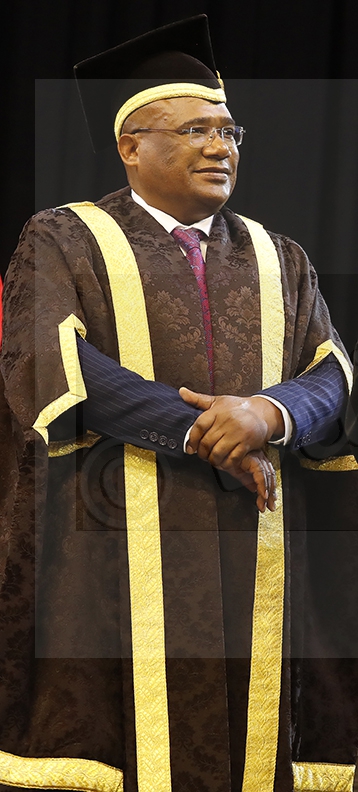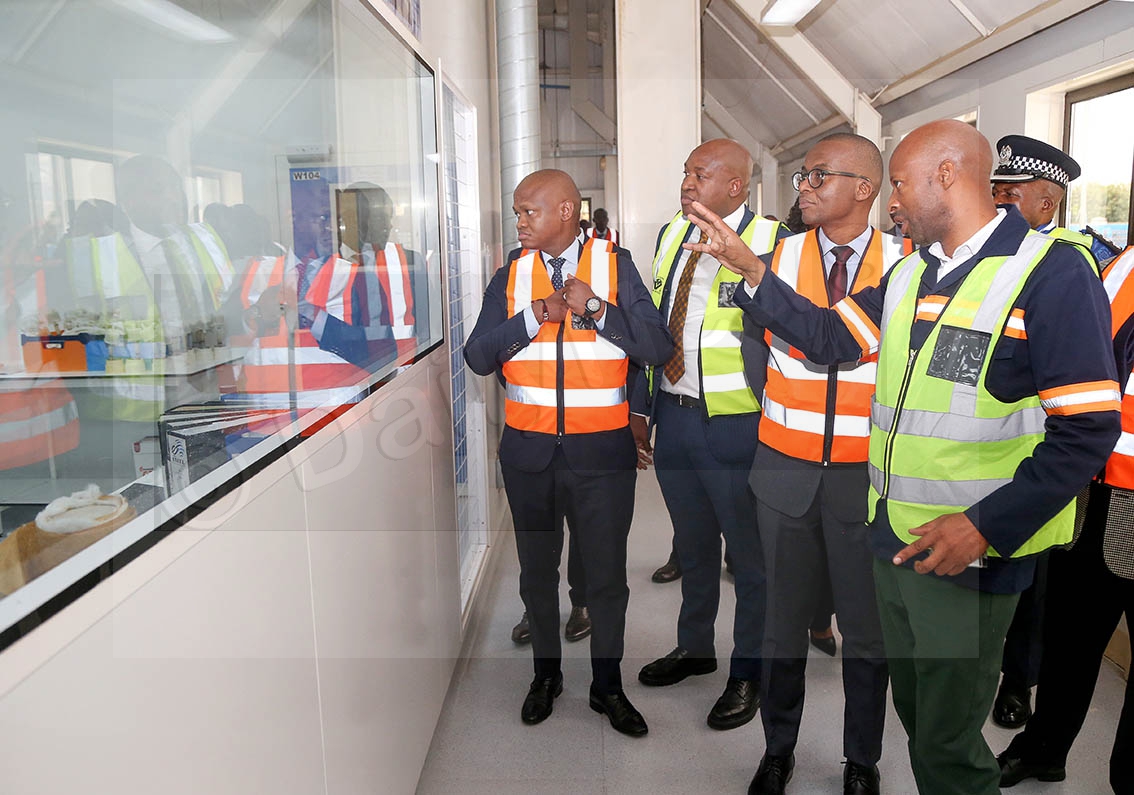Norris reveals vision behind UB sucess
23 Oct 2025
Behind every successful institution is a visionary leader, and this is the story of the University of Botswana (UB) with Professor David Norris as vice chancellor.
The improvement in the university’s regional and international rankings signify his dedication and strategic focus in shaping its future. An announcement during the 43rd graduation ceremony on October 16, that its research output has surged by 400 per cent over the past seven years, is a story worth telling.
In the same breath, Prof. Norris highlighted the university’s innovation centre which has developed several products now ready for commercialisation. BOPA reporter, Ndingililo Gaoswediwe paid Prof. Norris a visit, to appreciate how far he has come in transforming the university.
“Towards the end of 2017, when I joined UB, I examined the institution’s act and realised that the university was primarily focused on teaching, with limited emphasis on other vital functions such as quality research, innovation, and contributing to the country’s economic growth,” Prof. Norris explained.
The discovery set the foundation for a new strategic direction.
“Research, when integrated effectively, enhances the quality of teaching and can be a powerful tool to support a knowledge-based economy,” he added.
Prof. Norris, who currently oversees a university population nearing 20,000, recounted that his journey with the London-based organisation, Times Higher Education World University Rankings (THE WUR), began around this time.
These rankings are crucial because they help prospective students, researchers, and institutions understand where universities stand globally and identify areas for improvement.
Prof. Norris explained that being ranked is an achievement in itself, “it indicates that the university has reputable publications and is recognised on the global stage.”
THE WUR evaluates universities based on five key areas namely; teaching, research environment, research quality, industry income and International outlook, Prof. Norris said.
Although South Africa universities generally rank higher, with a 62.9 per cent research score, Prof. Norris said that UB surpassed some, such as University of Pretoria (57.5 per cent), and was approaching the level of the University of Johannesburg (69.9 per cent).
“Our ultimate goal is to reach the standards of top institutions like Stellenbosch,” he added.
Today, UB is the leading university in Botswana and ranks second among nine institutions in Southern, Central, and East Africa, 16th out of 56 Sub-Saharan African universities; 37th out of 141 African universities; and falls within the 1 001 to 1 200 band globally out of 2 191 institutions, a sign of relentless focus on quality.
“Quality is paramount, we do not accept substandard work. Rigorous quality assurance processes are ingrained before any publication,” said Prof. Norris.
The university has also been actively advancing innovation from its laboratories and Innovation Centre toward commercialisation.
As with all great achievements, Prof. Norris admits that room for improvement remains.
His priorities include refining teaching methods through digital technology, despite the significant investment required, and ensuring degree programmes remain relevant to today’s global demands.
While research funding has largely depended on limited institutional resources and external agencies like the NHI, he stressed the importance of establishing dedicated research centres.
Engaging industries, particularly small, medium, and micro enterprises (SMMEs), through high-quality research can be a catalyst for economic growth. He also talked about the urgency of transforming signed Memorandums of Understanding (MoUs) with various organisations, companies, and ministries into tangible collaborations rather than mere formalities.
To sustain and elevate the university’s global standing, Prof. Norris outlined that becoming a lecturer required holding a PhD, and promotion to senior lecturer depended heavily on the number of published journals. Although happy with the progress, Prof. Norris wishes to see the university producing more post graduates.
Out of the 3,539 who graduated this year, only 22 were honoured with PhD, and 500 awarded Master of Philosophy and Master’s Degrees, including Postgraduate Diplomas.
UB’s Institutional Planning director, Mr Richard Neill, pointed out that prior to 2019, there was no formal monitoring and evaluation system.
“Achieving a ranking in THE WUR was a major milestone, out of 30 000 applicants, only 2 500 universities are ranked,” he said.
UB made a major breakthrough in 2021, with its research impact score soaring from 11 to 62.9 per cent, a feat attributed by Mr Neill to the university’s specialisation in clinical, health, and social sciences.
Mr Neill highlighted innovations such as feed derived from black soldier fly larvae, hospital beds made from recycled plastics, as well as capacity-building initiatives in pharmaceuticals and biotech.
In terms of commercialisation, UB’s Faculty of Engineering is leading pioneering research into biodiesel, with an aim to reduce reliance on imported fossil fuels and promote a clean energy transition.
This aligns with Botswana’s Vision 2036 and its commitment to attain a 15 per cent reduction of greenhouse gas emissions by 2030. ENDS
Source : BOPA
Author : Ndingililo Gaoswediwe
Location : Gaborone
Event : Interview
Date : 23 Oct 2025





